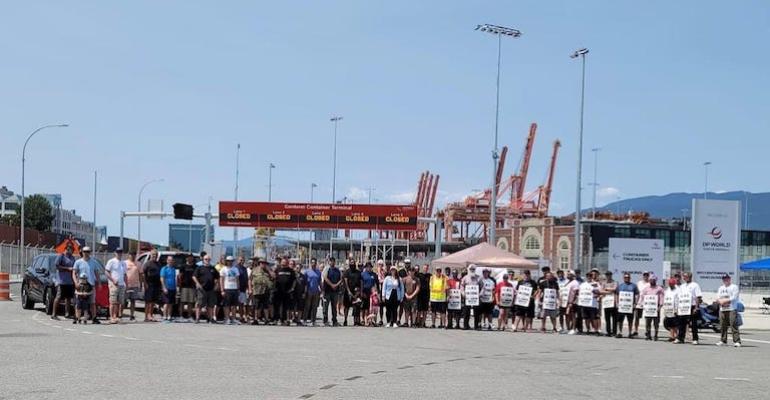In a brief statement the ILWU Canada said its members had voted “no” to the terms of settlement and called for “their direct employers” come to the table and negotiate. The ILWU negotiates with an umbrella body of terminals, shipping lines and other parties under the BC Maritime Employers Association (BCMEA).
The BCMEA stated: “ILWU Canada’s inability to ratify a fair and balanced recommended tentative agreement has left Canadians, businesses and the entire supply chain in a perilous state that has cost billions and will further hurt affordability and increase costs for Canadians.” The BCMEA has accepted the tentative agreement.
Hopes had been high that the dispute that resulted in a 13-day strike at the start of July at ports on Canada’s west coast including Vancouver and Prince Rupert would be resolved after the ILWU Canada caucus u-turned on a rejection of settlement terms from federal mediators and recommended them in a ballot of members.
With the no voted by members of the ILWU Canada the threat of strike action looms again although the union is yet to issue a new 72-hour notice to strike.
Meanwhile Canada’s Minister of Labour Seamus O’Regan says the government could impose a settlement. The Labour Minister said he had directed the Canada Industrial Relations Board to determine if the union member’s rejection of a recommended settlement had eliminated the possibility of a negotiated settlement.
“If the Board determines that to be the case, I have directed them to either impose a new collective agreement on the parties or impose final binding arbitration to resolve outstanding terms of the collective agreement,” he said in a statement.
“Our economy cannot face further disruption from this dispute. Following the Incident Response Group meeting with the Prime Minister on July 19, the Government is prepared for all options and eventualities.”
The Labour Ministry previously intervened to get the federal mediator to recommend a settlement. When the ILWU Canada caucus rejection the tentative settlement without a ballot of members Prime Minster Justin Trudeau called a crisis meeting in the form of the Incident Response Group resulting the union u-turning and recommending the settlement in a members vote.
Copyright © 2024. All rights reserved. Seatrade, a trading name of Informa Markets (UK) Limited.
Add Seatrade Maritime News to your Google News feed.  |

